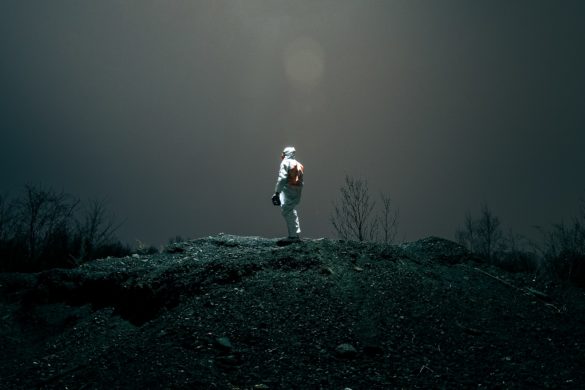Today we’re talking about how you can always have what other people want, which is vital as you lead, sell, build and live.
First, give me a minute to let you know that over on the Oneicity blog I’m discussing that age-old struggle: “I can’t afford that.” You’ve probably been there. You’re faced with a marketing or fundraising decision that seemed like what’s best for your organization, yet the price tag was steep. I think you’ll find my answer provocative (or just pokey). It’s right here.
Back to what everyone wants. Years ago I was consulting on a cable TV show concept that had “Hope” in the title. The Talent had picked the name and developed the concept before I came on board. I was producing the show, overseeing operations and delivering on the concept. The parent organization (a non-profit) hired a marketing pro to help rollout the show and oversee the capital campaign for funding. This marketing person was a super sharp, experienced woman who’d helped others like my client bring new media projects like this one to donors and ultimately to screens in the US.
I’ll never forget the first meeting. Everyone was completely pumped and the tension was tangible. There was about a half million dollars of seed money on the table. Plus a monster ego or three (including mine in those days). The Talent was there, emotionally engaged and invested in the project. The leadership of the organization was there; it was their start-up investment. Their CFO was there with an honest-to-goodness calculator and legal pad (all he needed was a green eyeshade to complete the Dickens’ stereotype). Also, sitting in was the brand-new marketing intern from the college. This marketing consultant. Oh, and me.
First words out of the consultant’s mouth were: “no one will give sacrificially to provide ‘hope’ for someone. Hope’s not powerful. It’s not clear. It’s not definable. You should change the name for fundraising purposes, if for no other reason. That’s a really bad name.” And then as one does when you’ve dropped something unpleasant into the punch bowl, she sat quietly as that tight little conference room erupted.
Feisty with a side order of seething frustration pretty much describes the meeting. At one point, I thought “calculator-man” was going to come to blows with the intern because the intern had quickly agreed with the consultant and piled on with all the ways he thought it was a bad title. (That’s probably one of the best reasons to always have interns, they believe that stuff about it being safe for everyone to give honest opinions).
Yet, she (and the intern) were right.
Sorta.
“Hope” is vague.
“Hope” is intangible.
“Hope” is difficult to define.
It’s not a lightning-rod concept. It’s not a banner phrase. It doesn’t galvanize or mobilize people to take action. It seems like something “nice” but not life-saving. Not many people will storm the barricades to provide “hope” to someone. It’s one of those things that’s nice to have but not life or death.
Not life and death, that is, until you’re the one desperate searching for that glimmer of hope. In those dark moments, just a sliver of an outside chance that things could be better is life-giving. Then, it’s very much life and death.
Really, hope is what we all ache for at some point in our lives.
We want to know that there’s hope after the doctor delivers the test results.
We need hope after our kid’s gone off the rails…again.
We want to know there’s hope for our business. Or retirement account. Or our career.
We need hope for our families.
We crave hope after we’ve screwed up (again).
Hope is peculiar. We may crave just enough hope to get through a dark, sad night. Or hope that there’s more to this life than the struggles of here and now. Hope can be tiny or huge.
Hope is personal.
Most of us are hungry for hope even if we can’t define it or draw a picture of it. But we know what we’re longing for it.
Which takes me to what I think is the big point about hope. That marketing consultant was right.
The word “hope” can seem a bit anemic and limp.
It’s the words after “hope” where the magic and power happens. Notice how often we say and think (and pray) the phrase: “…hope for…”
As in: hoping for a cure or hoping for answers or hoping for relief or hoping for justice or hoping for weight loss for ourselves.
When you look at the powerful marketing and political messages that are gaining traction and attention, it’s startling to me how many of them are rooted directly and indirectly in this personal “hope for” equation. When you unpack the message, it’s about tapping into the audience’s deeply rooted desperation for answers for themselves.
If you run a business, consider first what do your customers “hope for.” If you answer it accurately, you’ll always have customers.
If you sell (and who among us doesn’t), figure out what your target audience is hoping for.
If you lead a team, your team will follow you and perform better if you know what they’re hoping for.
And if you talk about hope, don’t forget to include and focus on the “for what” part of the equation. And never ever forget that people are craving hope even if they won’t extend it to someone else. Without those factors, hope is indeed weak and ill-defined.
Always, always try to be the person who offers hope. And when you do, you’ll provide what people around you desperately want.
I’m going to work on providing, offering and talking about hope more. What about you?
That’s what I have. I hope you are well. Let me know what you think. Just hit reply and you’ll get me.
st
Steve Thomas
CEO, Oneicity
Partner, Hoots & Thomas Wizard of Ads, Ltd.
If you know someone who might enjoy this email, forward it to them and tell them to click this link to get an email of their very own (I’m grateful).
In case you’re wondering, this is an informal email I write to Oneicity clients, friends, and other VIPs every week or so. If you’re getting this, either you’re one of those people or you signed up to receive our newsletter. I always love your comments and feedback. And if you can’t stand this email cluttering up your inbox you can unsubscribe anytime and I’ll leave you alone.





